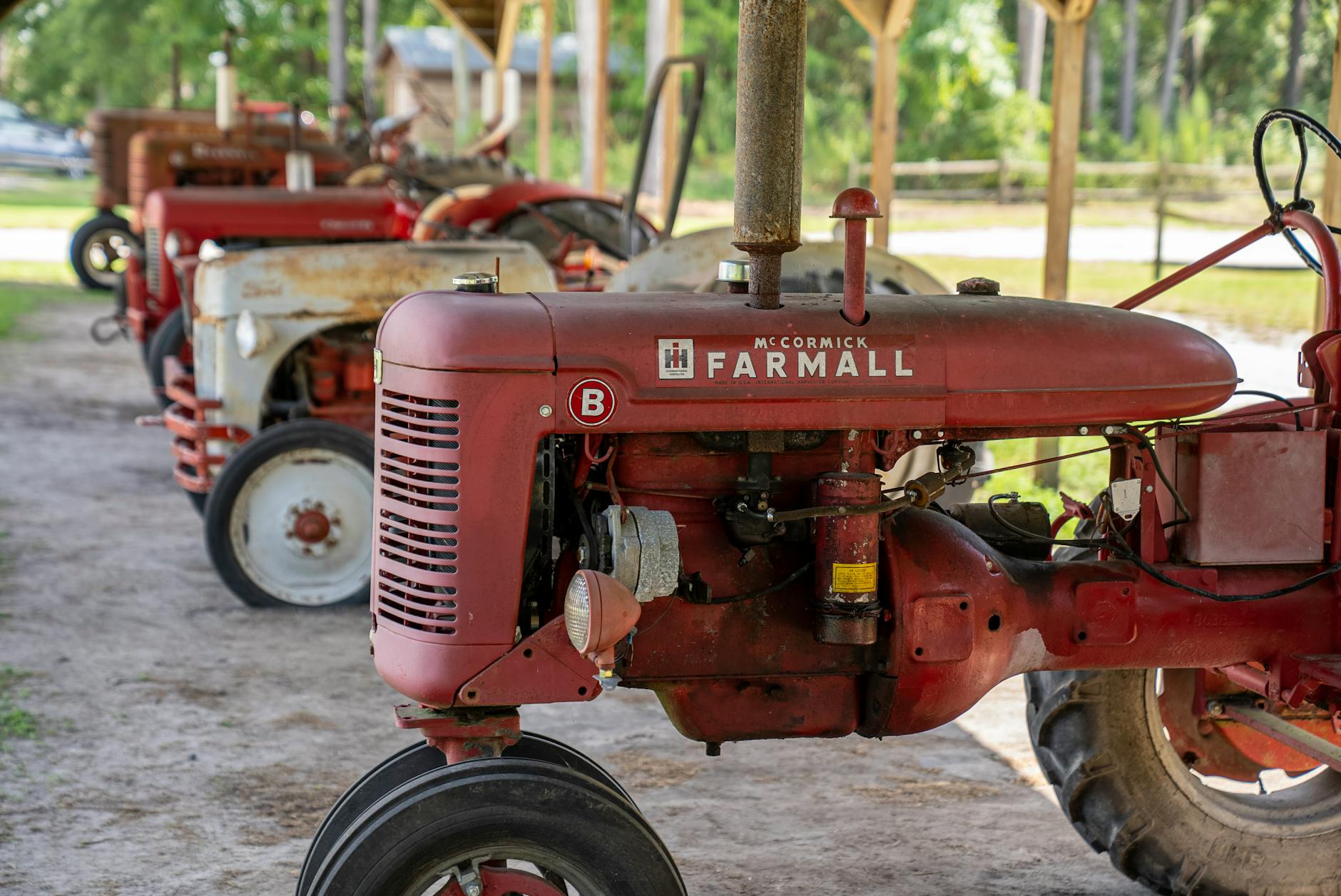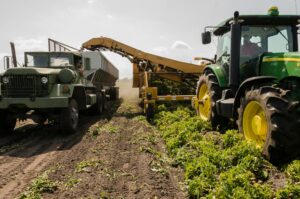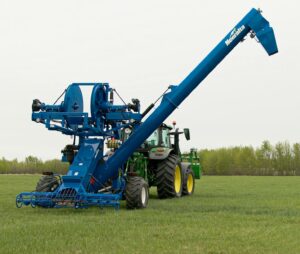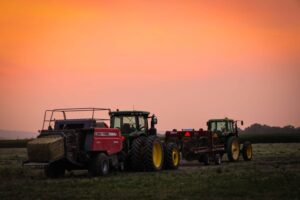In recent years, an unexpected trend has emerged in the agricultural world: farmers are increasingly turning to 40-year-old tractors instead of investing in brand-new models. At first glance, this might seem counterintuitive. After all, modern tractors come equipped with advanced technology, better fuel efficiency, and improved comfort.
So, why are farmers opting for older machines? In this article, we’ll explore the reasons behind this trend, the benefits of older tractors, and whether this approach makes sense for today’s farming needs.
The Appeal of 40-Year-Old Tractors
1. Affordability and Cost-Effectiveness
One of the most significant reasons farmers are buying 40-year-old tractors is the cost. New tractors can be prohibitively expensive, with prices often ranging from 50,000toover50,000toover200,000, depending on the model and features. In contrast, older tractors can be purchased for a fraction of the cost, typically between 5,000and5,000and20,000.
For small-scale farmers or those operating on tight budgets, this price difference is a game-changer. Older tractors allow farmers to acquire reliable machinery without taking on substantial debt or draining their savings.
2. Simplicity and Ease of Repair
Modern tractors are packed with advanced technology, including GPS systems, automated steering, and computerized components.
While these features can improve efficiency, they also make repairs more complicated and expensive. Older tractors, on the other hand, are mechanically simpler, with fewer electronic parts and more straightforward designs.
This simplicity makes them easier to repair and maintain, even for farmers with basic mechanical skills. Additionally, parts for older models are often more affordable and widely available, reducing downtime and repair costs.
3. Durability and Longevity
Many 40-year-old tractors were built to last. Brands like John Deere, Ford, and International Harvester produced machines during this era that were known for their rugged construction and reliability.
These tractors were designed to withstand tough conditions and heavy use, making them a dependable choice for farmers even decades later.
In contrast, some modern tractors are criticized for being less durable, with more plastic components and complex systems that may not stand the test of time.
4. Nostalgia and Trust
For many farmers, older tractors evoke a sense of nostalgia and trust. These machines were often part of their family’s farming history, passed down through generations. Using a 40-year-old tractor can feel like honoring tradition and maintaining a connection to the past.
Additionally, farmers who grew up using these models are often more familiar with their operation and maintenance, giving them confidence in their reliability.
5. Lower Depreciation
New tractors lose value quickly, often depreciating by 20-30% in the first year alone. In contrast, older tractors have already undergone most of their depreciation, meaning their value remains relatively stable over time. This makes them a smarter financial investment for farmers who may need to resell the equipment in the future.
Challenges of Using 40-Year-Old Tractors
While there are many benefits to using older tractors, there are also some challenges to consider:
1. Limited Technology
Older tractors lack the advanced technology found in modern models, such as GPS guidance, automated systems, and precision farming tools. This can make them less efficient for large-scale operations or tasks that require high levels of accuracy.
2. Fuel Efficiency
Modern tractors are designed to be more fuel-efficient, which can result in significant cost savings over time. Older models, especially those with larger engines, may consume more fuel, increasing operating costs.
3. Comfort and Safety
Older tractors often lack the ergonomic features and safety enhancements found in newer models. This can make them less comfortable to operate for long periods and potentially more hazardous.
4. Availability of Parts
While parts for many older tractors are still available, some models may have discontinued components that are difficult to find. This can lead to delays in repairs and increased costs.
Why This Trend Makes Sense for Some Farmers
Despite the challenges, the trend of buying 40-year-old tractors makes sense for many farmers, particularly those with specific needs and circumstances:
1. Small-Scale and Hobby Farmers
For small-scale or hobby farmers, the high cost of a new tractor may not be justified. Older tractors provide a cost-effective solution that meets their needs without breaking the bank.
2. Vintage Equipment Enthusiasts
Some farmers are passionate about vintage equipment and enjoy restoring and using older tractors. For these individuals, the appeal goes beyond practicality and becomes a labor of love.
3. Sustainable Farming Practices
Older tractors align with the principles of sustainable farming by reducing waste and promoting the reuse of existing resources. Instead of contributing to the demand for new machinery, farmers can extend the life of older models, reducing their environmental impact.
4. Customization Opportunities
Older tractors are often easier to customize and modify to suit specific farming needs. Farmers can adapt these machines to perform specialized tasks or integrate modern components without the complexity of newer systems.
Tips for Buying a 40-Year-Old Tractor
If you’re considering purchasing an older tractor, here are some tips to ensure you make a smart investment:
- Research the Model: Look for models known for their durability and reliability. Brands like John Deere, Ford, and Massey Ferguson are popular choices.
- Inspect the Tractor: Check for signs of wear and tear, rust, or damage. Pay special attention to the engine, transmission, and hydraulic systems.
- Test Drive: Operate the tractor to ensure it runs smoothly and performs as expected.
- Verify Parts Availability: Make sure replacement parts are still available for the model you’re considering.
- Consider Maintenance Costs: Factor in the cost of repairs and maintenance when budgeting for your purchase.
- Buy from a Reputable Seller: Purchase from a trusted dealer or private seller with a good reputation.
The Future of Older Tractors in Agriculture
As the agricultural industry continues to evolve, the role of older tractors may change. However, their affordability, simplicity, and durability ensure they will remain a viable option for many farmers.
Additionally, the growing interest in sustainable practices and vintage equipment suggests that the demand for 40-year-old tractors will persist.
In the future, we may see more farmers blending the old with the new, using older tractors for certain tasks while incorporating modern technology where it makes sense. This hybrid approach could offer the best of both worlds, combining the reliability of older machines with the efficiency of modern innovations.
Conclusion
The trend of farmers buying 40-year-old tractors is a testament to the enduring value of these machines. While they may lack the advanced features of modern models, their affordability, simplicity, and durability make them an attractive option for many farmers.
Whether you’re a small-scale farmer, a vintage equipment enthusiast, or someone looking for a cost-effective solution, an older tractor could be the perfect fit for your needs.
At TractorHubs.com, we understand the importance of finding the right equipment for your farming operations. Explore our extensive listings of both new and used tractors, and discover the benefits of investing in a 40-year-old tractor today. Together, let’s celebrate the timeless appeal of these agricultural workhorses and their role in shaping the future of farming.
Keywords: Why are farmers buying 40-year-old tractors, benefits of older tractors, vintage tractors, affordable farming equipment, durable tractors, small-scale farming, sustainable agriculture, tractor maintenance, buying used tractors.



